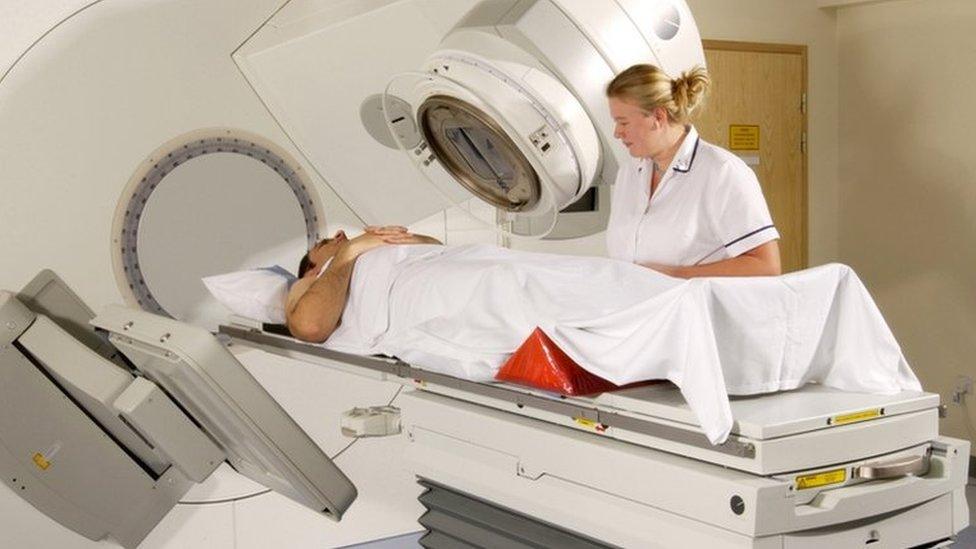Cancer waiting times in Scotland 'worse than 10 years ago'
- Published

Cancer waiting times are worse than they were 10 years ago, according to Macmillan Cancer Support in Scotland.
New figures show 13% of patients were not seen within the Scottish government's target of 62 days from urgent referral to treatment - a 3% drop on the previous year.
The biggest falls were in lymphoma, urological and head and neck cancers.
Health Secretary Shona Robison has announced the creation of a new group to improve waiting times.
The first focus of the group, which will receive Ā£1m of new funding, will be on speeding up the roll-out of early cancer detection measures.
Ms Robison said the average wait for cancer treatment was currently six days.
Radiology trainees
But she added: "Some waits are too long and the new delivery group will report back to me in early 2018 with recommendations to enhance cancer diagnosis and treatment going forward."
She also announced that Ā£3m would be invested to increase the number of additional radiology trainees by at least 50 over the next five years.
The Scottish government's target is for 95% of patients who receive an urgent cancer referral to receive treatment within 62 days.
However, the figure for the period between April and June 2017 was 86.9% - down from 88.1% in the previous quarter.
The target was only met by three NHS Boards: NHS Dumfries and Galloway, NHS Lanarkshire and NHS Orkney.
Long-term solution
Janice Preston, the head of Macmillan Cancer Support in Scotland, said waiting times for cancer treatment were worse now than when they were first introduced a decade ago.
"Waiting to start treatment is an incredibly stressful time for most people," she said.
"It's vital the reasons behind these delays are understood and a solution found.
"But we need a long-term solution, not a temporary fix. The cancer care system must adapt to meet the challenge of supporting the vastly increased numbers of people with cancer."
Conservative health spokesman Miles Briggs described the figures as "inexcusable", while the Liberal Democrats' Alex Cole-Hamilton said the 62-day target had not been met for five years.